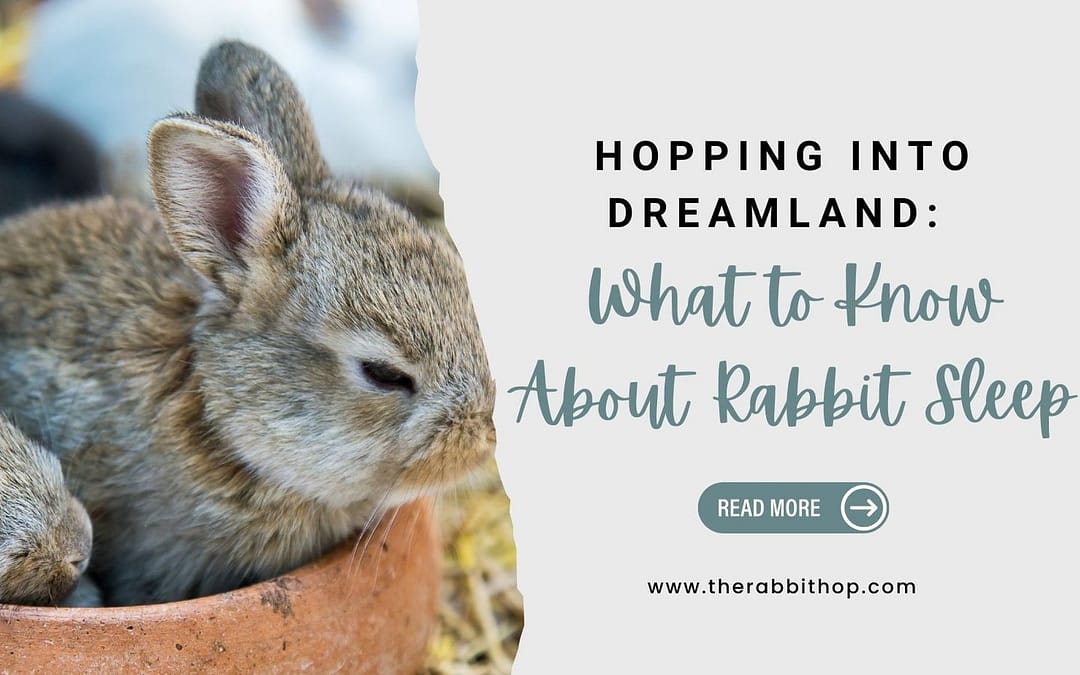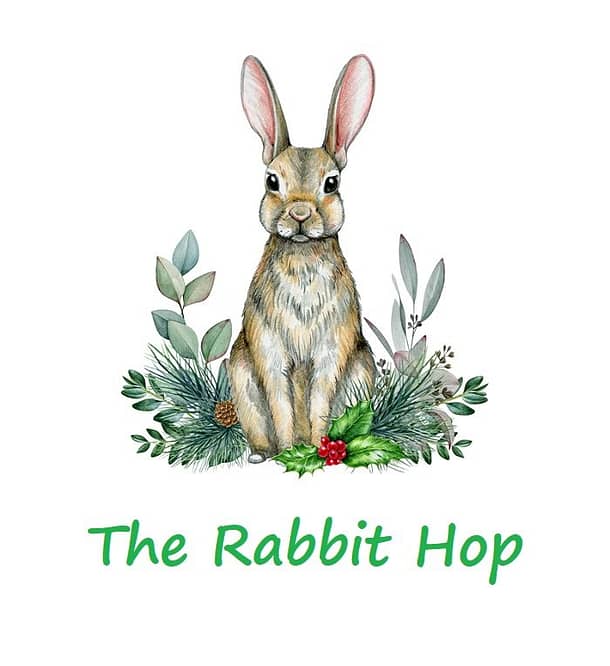Welcome to Hopping into Dreamland: What to know about rabbits sleep! If you’ve ever wondered when rabbits sleep or what goes on in the cozy world of rabbit slumber, you’re in for a treat. Rabbits might seem like they’re always on the move, but just like us, they have moments of peaceful rest. In this exploration, we’ll uncover the fascinating realm of rabbit sleep. So, let’s hop in and discover how these adorable creatures catch their sleep!
Are Rabbits Nocturnal Animals?
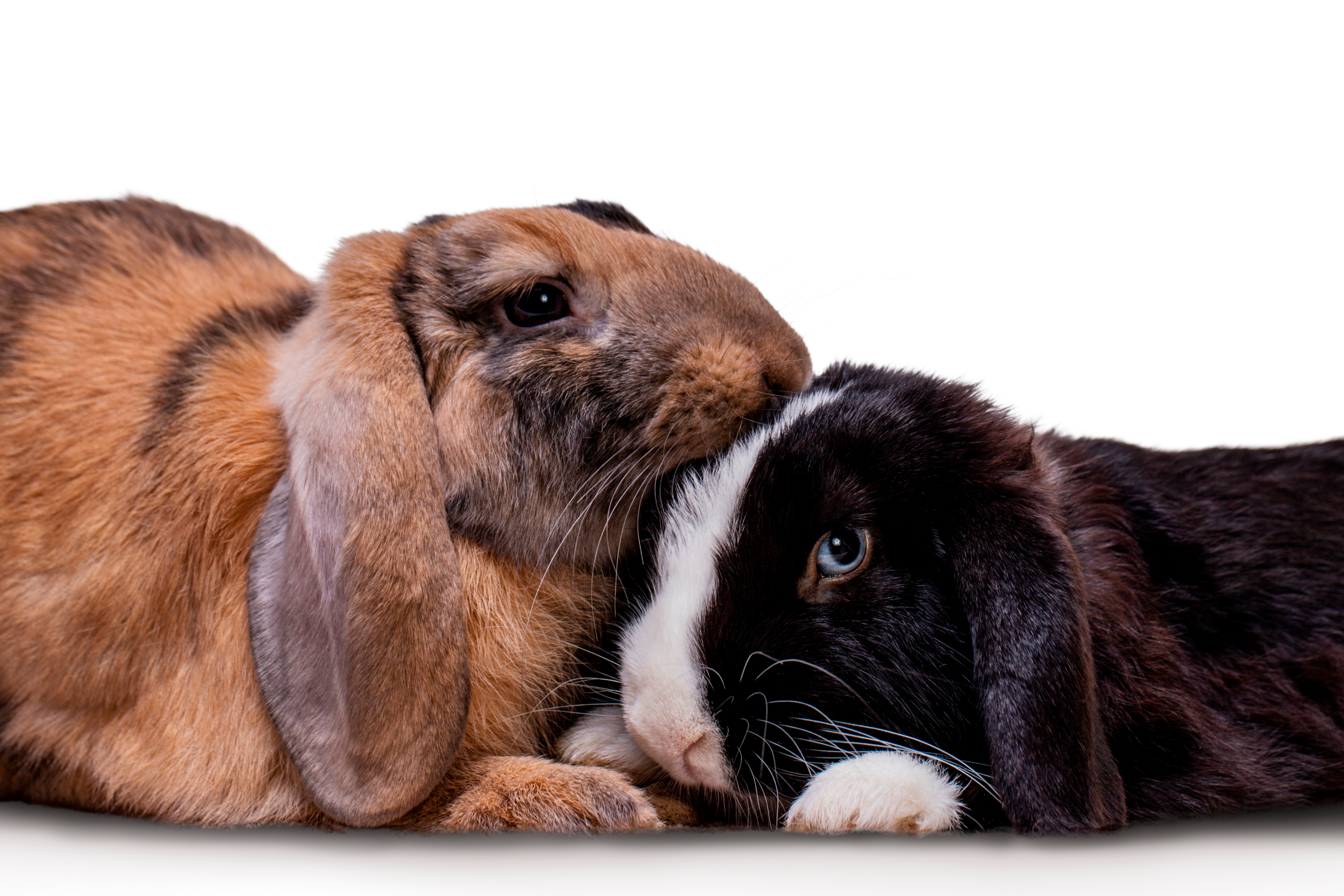
Rabbits are not nocturnal animals. Many people think that rabbits are nocturnal animals, but they’re not. They sleep during the afternoon and also at night. So when are rabbits active? Rabbits are crepuscular. They have the most energy around sunrise and sunset.
Hey there! If you’re curious about when rabbits are up and about, here’s a little breakdown for you:
- Early morning: Rabbits tend to be most active early before sunrise. This is when they’ll be looking for food and water.
- Dusk: You might also catch rabbits active at dusk as they prepare for the night. They might groom themselves, stretch, or even play a little.
- Night: When it’s dark out, rabbits are most active. They’ll be out there foraging for food, building nests, and hanging out with other rabbits.
- Daytime: During the day, rabbits mostly sleep (lucky them!). They might take a few short naps here and there, but they’ll also spend some time grooming themselves, eating, and drinking water.
What is Crepuscular?
Have you ever heard of the word ‘crepuscular’? It’s pretty cool – it comes from the Latin word ‘crepusculum,’ which means ‘twilight.’ In the animal world, being crepuscular means an animal is most active during those special times when it’s not quite day or night but more like dawn or dusk. There are a few types of crepuscular animals:
- Matutinal Crepuscular Animals: These guys are the early risers of the animal kingdom. They’re all about that morning twilight, right before the sun rises.
- Vespertine Crepuscular Animals: These are the evening stars of the animal world. They love the twilight that comes just after the sun sets.
- Both Matutinal and Vespertine Crepuscular Animals: These creatures are true twilight enthusiasts – they’re out and about during both the morning and evening twilight hours.
What’s the Reason Behind Rabbits Being Crepuscular?
Nowadays, this crepuscular thing doesn’t impact our pet bunnies much. But in the wild, those clever rabbits evolved their little internal clock to outsmart their predators.
And it serves as their advantage in:
Outsmarting Predators
Rabbits are on the menu for demanding customers like foxes, wolves, hawks, owls, and even sneaky snakes. But here’s the clever bit – these predators are taking a breather from their hunting spree during the crepuscular times. That means rabbits can roam around with a bit less worry.
Snack Time
Picture this – the plants rabbits love to munch on are like the life of the party during the morning and evening. It’s more relaxed, and there’s dew on the ground, giving those plants a nutritious boost. So, it’s like a gourmet feast for our fuzzy friends.
Chillin’ Out
Rabbits aren’t precisely the pros at managing their body temperature. They can get overheated pretty quickly. But guess what? Crepuscular hours are like the air-conditioned part of the day, making it much more comfy for them.
Food Diplomacy
Imagine if everyone in the neighborhood hit up the grocery store simultaneously – chaos, right? Well, it’s kind of the same in the animal world. Many creatures are also crepuscular, So by having their mealtime during these hours, rabbits avoid serious food fights.
Oh, and here’s another tidbit – according to the experts, there’s more to this crepuscular rabbit lifestyle. It turns out that being social butterflies might also be a factor. These bunnies are pretty chatty – they use all sorts of sounds to chat with each other. And guess what time they’re most talkative? Yep, during the crepuscular hours. It’s like their designated catch-up time.
And in the grand scheme of things, this whole crepuscular deal is like their secret weapon for achieving life. It’s a complex trick they’ve learned to survive and thrive in their surroundings. Smart, huh?
How Much Do Rabbits Sleep?
Suppose you’re wondering how much sleep your pet rabbit needs. Your pet rabbit needs around 8 to 12 hours of sleep on a typical day. Bunnies follow their crepuscular nature, meaning they are most active during the early morning and late evening. So, they nap for a good portion of the day and become lively at night. They might also sneak in some short naps during daylight hours.
The specific amount of rabbit sleep required varies based on age, overall health, and personality.
Several elements come into play when determining a rabbit’s sleep needs:
- Age: Baby rabbits require more sleep than their older counterparts.
- Health: Rabbits facing illness or stress may need more sleep than healthy peers.
- Personality: Some rabbits are naturally more energetic like humans and might need less sleep.
- Environment: If a rabbit resides in a bustling or tension-filled setting, it might lean toward needing additional shut-eye.
Rabbits’ Two Phases of Sleep
First, the light rabbits’ sleep phase is the most common naptime for these furry friends. Rabbits chill out in this phase for about 70% of their snooze time. They’re breathing slowly down when they’re in this light sleep mode. You might catch your rabbit’s eyes dancing under their closed eyelids, and those adorable ears might twitch here and there. Interestingly, they’re pretty alert during this phase – if they sense any danger, they can snap awake instantly.
Then comes the deep rabbits’ sleep phase, like the rabbit’s version of a deep sound sleep. This takes up around 30% of their total sleep time. During this phase, their breathing goes even slower, and their muscles release all the tension. The cool thing is, they’re seriously knocked out during this time. It’s not easy to wake them from this deep sleep mode – they’re in rabbit’s dreamland and not coming back until they’re good and ready!
Do Rabbits Dream?
Rabbits do have their little dream world! Like humans, they experience REM sleep– the stage when all the dreaming action takes place. So, imagine bunnies having their nighttime adventures, just like we do.
Their dreams might be a mix of things that happened during their day or even stuff they’re a bit nervous about. It’s like a rabbit’s imagination taking a spin while they sleep.
And here’s something cute – when rabbits are deep in dreamland, they might give a little twitch or make tiny movements. It’s all part of the package and standard—no need to worry if you see these little bunny ballet moves.
But hold on, if your rabbit is suddenly belting out loud bunny symphonies or seems all fidgety, it could signal that something’s up health-wise. So, while a bit of twitching is OK, big noises or significant restlessness might be worth a trip to the vet. It’s better to make sure everything’s hopping along smoothly!
Does the Rabbit Keep Its Eyes Open While Sleeping?
Not all rabbits keep their eyes open while they’re sleeping. Some go for the full-on closed-eye nap or the halfway closed-eye power nap. It’s like they’re deciding how secure they’re feeling. Some rabbits are all about the wide-eyed sleep style. Even rabbits that usually shut their eyes for a nap might go all open-eyed if they do not feel the safe vibes.
And now you might be wondering, “How come their eyes don’t turn into dry patches?” They’ve got this fancy trait called the nictitating membrane, also known as the “Third eyelid.” It’s like a clear eyelid that rabbits can just slide over their eyes whenever they want. This keeps their eyes comfy and moist. Pretty neat? So, even though those eyes might be open, they’re not getting parched anytime soon.
What’s the Reason Behind Rabbits Keeping Their Eyes Open While Sleeping?
Have you ever wondered why rabbits sleep with their eyes wide open? Well, they’ve developed this unique sleeping style to protect themselves; it is their defense mechanism. In the wild, rabbits have picked up on a couple of intelligent benefits by doing so:
- Faking Alertness: When rabbits sleep with its eyes open, it tricks potential predators. See, many predators are more likely to target a sleeping rabbit because it’s less alert and might not make a quick escape. But when a rabbit keeps its eyes open, it gives off the vibe that it’s awake and aware, making predators think twice before attacking.
- Staying in the Light: Here’s another nifty thing. When a rabbit’s eyes are open, they can sense changes in light much faster. So, if danger approaches – a hungry fox or a sneaky hawk – the rabbit will spot it way sooner than if its eyes were shut.
You know, rabbits are prey animals. They have this instinct that tells them danger could happen at any moment. It’s like they’re always ready to leap into action. Now, when it comes to your pet bunnies, they might be more willing to close their eyes when napping, especially if they feel safe around you. But even then, some bunnies will stick to their open-eyed snooze style – it’s just in their nature!
How Do You Figure Out if Your Rabbit is Catching Some Sleep?
Have you ever tried figuring out if your rabbit’s in dreamland? It’s a mystery since rabbits have this quirky habit of napping with their eyes open. So, what’s the deal?
You might think your bunny buddy is just chillin’, wide awake, when they’re catching some serious sleep. It’s like trying to spot a ninja in stealth mode. Here’s the scoop – whether you realize it or not, you’ve probably seen your rabbit sleep. But knowing what to look for can help you catch them in the act.
Some hints can clue you in when your rabbit’s taking a nap:
- Chill nose: When in the snooze zone, your rabbit’s nose isn’t doing its usual twitch dance. The faster the nose twitchs, the more awake they are.
- Slow breathing: If you can sneak up close, you’ll notice your pet rabbit’s breath slowing down. It’s like their rhythm gets all relaxed.
- Dreamy twitches: Ever seen them twitching their legs, ears, mouth, eyelids, or tail? That’s a sign they’re catching some intense sleep and possibly having a rabbit-style dream.
- Rabbits snore: Yep, rabbits can snore too! You might catch some soft grunts or raspy sounds during their slumber party.
- Laid-back ears: Check your pet rabbit’s ears. If they’re ‘ against the head, your bunny’s probably having sweet dreams. Upright ears mean they’re in full alert mode.
Now, here’s a little secret – not all rabbits are cool with sleeping when humans are around like the other animals. It might take them ages to trust you enough for nap time. So, ensure your furry pal has a cozy, safe spot to retreat. Privacy is a big deal for bunny sleepovers!
To know more about how to know if your rabbit is catching some sleep, you can check on this video. How to know when a rabbit is sleeping by: The Bunny Lady
Adorable Sleeping Positions
These fluffy creatures have some interesting sleeping positions and ways of catching their sleep, quite different from how humans or other pets:
Loaf Position
Picture this – a rabbit kicking back, lying on its tummy with its hind legs all stretched out behind like it’s taking a lazy nap. It’s a position that might seem strange to humans, but it’s their unique way of getting some shut-eye.
Sprawling
It’s similar to the loaf position but has more room to breathe. The rabbit spreads its back legs out more like saying, “Ahh, this is life.” If humans tried this, they might end up hogging the entire bed!
Flop
This one’s a classic. The rabbit goes all-in and flops over on its side like it doesn’t care. It’s a carefree position that shows just how relaxed rabbits can be.
Upright
Now, here’s a quirky sleeper. Most rabbits go for the upright style, standing like a tiny guard on duty with their front paws down and the back ones snuggled underneath. It’s unexpected, but you might catch a rabbit striking this pose. Imagine if humans tried sleeping while standing – they might tip over!
Rabbit’s Behavior Can Be Influenced by Sleep
A rabbit’s behavior can be influenced by how well they sleep. It’s like they can go through some noticeable changes when they don’t get enough shut-eye.
When rabbits miss sleep, they might turn a bit cranky, move in slow-mo, or even drop a few pounds. It’s like they’re feeling the effects of a sleep deficit – just like us when we’re running on too little rest. Here’s the lowdown on how sleep can affect rabbit behavior:
- Energy levels: Sleep helps rabbits manage their energy levels. If they’re short on sleep, their energy can hit rock bottom, making them less bouncy and more like couch potatoes.
- Mood : Think of sleep as a mood stabilizer. If rabbits don’t get enough, they could be moodier than usual and less up for playful antics.
- Appetite: Sleep even keeps their appetite in check. They might not be up for munching as much without enough sleep.
- Stress : Sleep is like their personal stress reliever. But they might be more on edge and anxious if they’re not getting enough sleep.
- Behavioral : Skipping out on sleep can lead to a bit of a behavior rollercoaster for rabbits. They might get all rowdy, tear up things, or start pacing around like they’re in a rabbit race.
So, just like us, rabbits need their beauty sleep to stay their happy, well-behaved selves!
What to Do if Your Rabbit Isn’t Catching Enough Sleep
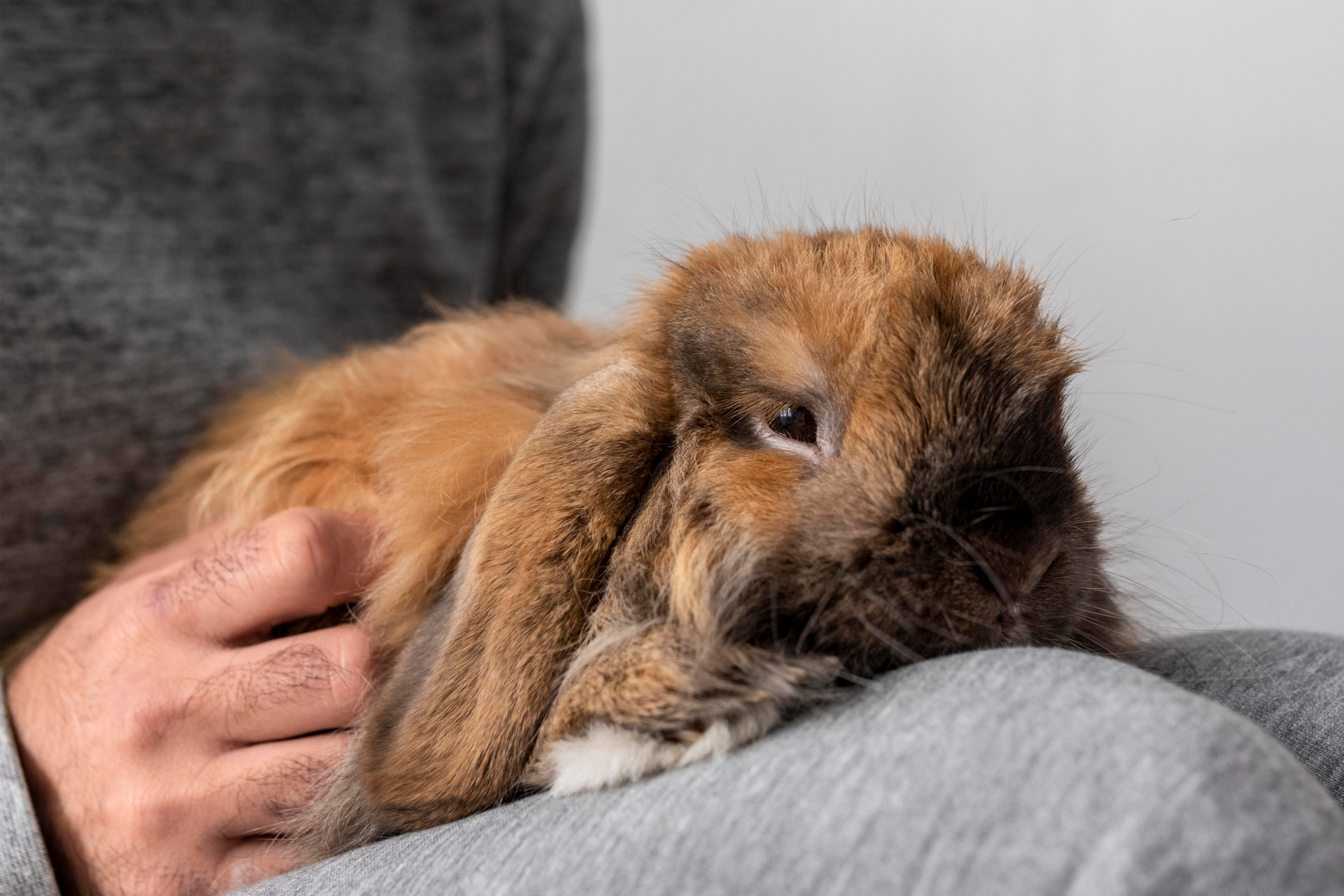
Worried your bunny’s not catching enough shut-eye? Don’t fret, here’s a simple action you can take:
- Cozy corner: Ensure your rabbit has a nice, quiet, and dim spot to snooze away. Think of it as their dreamy hideout.
- Comfy climate: Keep their crib comfy – not too hot or cold. Just right, like in the storybooks!
- Peace and quiet: When your furball are in nap mode, avoid going all rock concert around them. Keep the noise down and save the dance moves for later.
- Sleep time respect: Just like us, rabbits need their beauty sleep. Let your little snoozer doze off without disturbances.
And if your concerns are still hanging around, it’s time for the vet chat. They’re the experts who can give you the scoop. They’ll help determine if your rabbit’s getting enough shut-eye and ensure there’s no sneaky medical stuff going on. Your furry buddy’s sleep is in good hands!
Additional Tips for Helping Your Rabbit Sleep Well
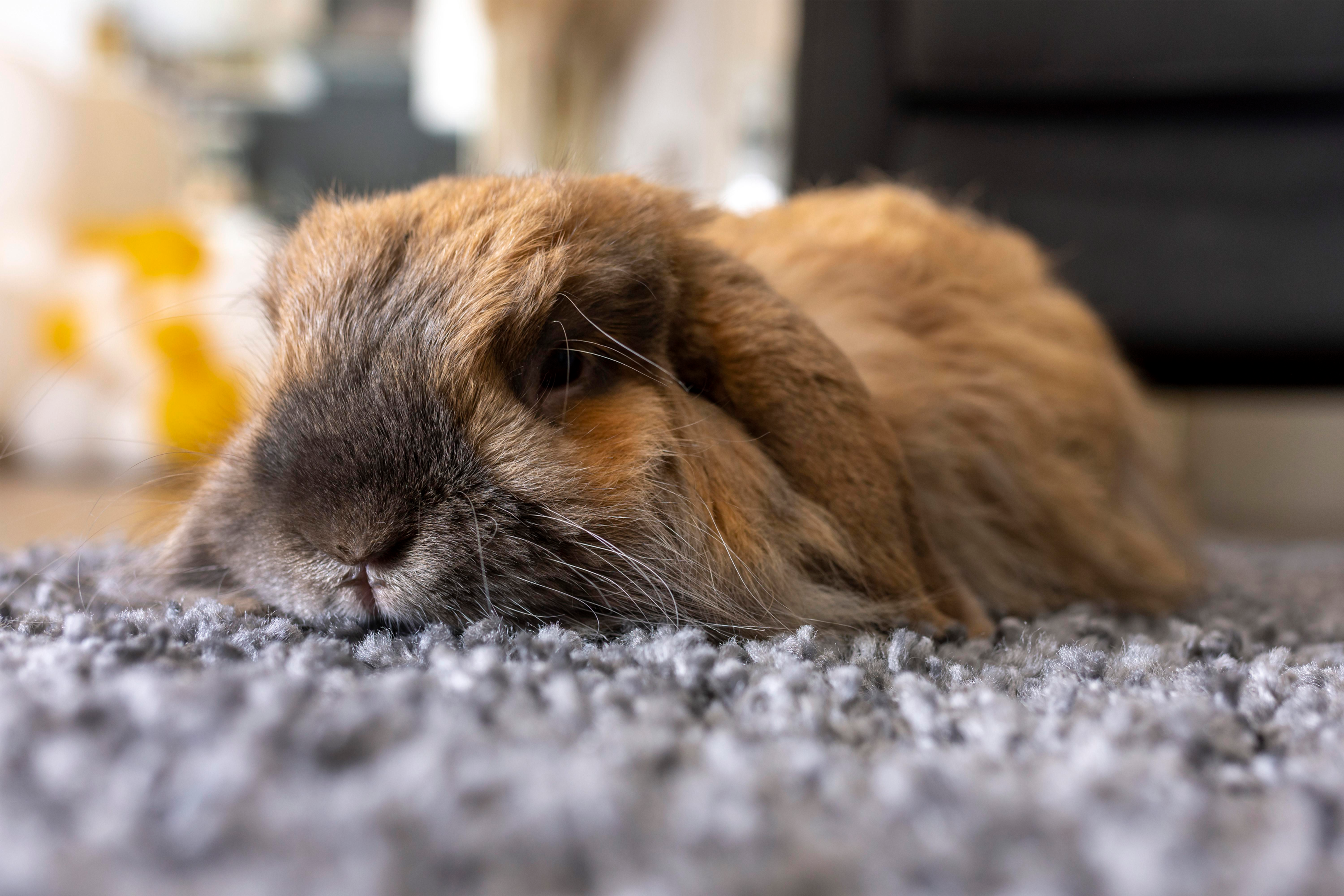
Ensuring your rabbit catches their sleep comfortably is vital. Here are some additional tips to help your furry friends out: set up a snug sleeping spot for them – think hutch, cage, or even a cozy corner in your home. Layer on the bedding so their resting area turns into a super inviting soft haven. Keeping things clean is a must, so clear out any debris to maintain their sleep zone’s comfort.
Speaking of location, avoiding noisy spots or places with sudden commotion is a good idea. Bunnies are big fans of quiet for their beauty sleep. And here’s a nifty idea: Create a little bedtime routine for your rabbit. Just like us, they appreciate winding down before sleep. This way, they’ll be all set to drift off into dreamland with ease.
Conclusion
So there you have it, the fascinating world of rabbit sleep unveiled! If you’ve ever wondered what these fluffy critters do when they hit the hay, now you know the whole scoop. Despite their bouncy nature, rabbits take some time for peaceful slumber, just like we do. From their quirky sleep positions to how they keep their eyes open, it’s a whole adventure. And if you ever wonder about your rabbit’s sleep habits, remember that a well-rested rabbit is a happy rabbit. So, let your furry friend catch those zzzs in their adorable way, and you’ll have one content little companion hopping through life!
Frequently Asked Questions
Do bunnies like to be pets?
Yes, many bunnies enjoy being gently petted. Please just be sure to talk to them calmly and respect their personal space.
Why do rabbits only come out at night?
Rabbits are most lively during the dawn and dusk because it’s safer for them. These moments provide some darkness and a lower risk of predators noticing them. They follow a crepuscular routine, feeling at ease and careful during these dimly lit times. It’s their way of finding a middle ground between having fun and staying safe!
🐰🌟 Discover The Rabbit Hop 🌟🐰
👉 Dive into a world of rabbit care and companionship at The Rabbit Hop! 👈
🥕🏠 Explore our website: https://therabbithop.com/
💬 Connect with a Passionate Community: Join fellow rabbit lovers, share experiences, and get support from our friendly community.
💬 Let’s learn more about our bunnies! Follow us on Facebook, Instagram, and Twitter for easy tips, fun stories, and a friendly group that also loves rabbits.
Facebook: https://www.facebook.com/therabbithop2
Connect with us on Facebook at “The Rabbit Hop” for a treasure trove of bunny-related insights. Discover easy tips, heartwarming stories, and join a friendly community that shares your love for rabbits. Explore rabbit care, behavior, and more.
Instagram: https://www.instagram.com/the_rabbit_hop/
Dive into the world of bunnies with us on Instagram! Follow @the_rabbit_hop for delightful snapshots of rabbit adventures, informative tidbits, and adorable moments. Join a community that celebrates the charm and companionship of these furry friends.
Twitter: https://twitter.com/Hop1Rabbit
Stay in the loop with all things rabbit-related on Twitter! Follow @Hop1Rabbit for quick tips, playful anecdotes, and rabbit-loving camaraderie. Engage with fellow bunny enthusiasts and enrich your understanding of rabbit care and companionship.
Let’s get to know our bunnies better together!
Hop on over to The Rabbit Hop now! 🐇🌈 Visit us at: https://therabbithop.com/

